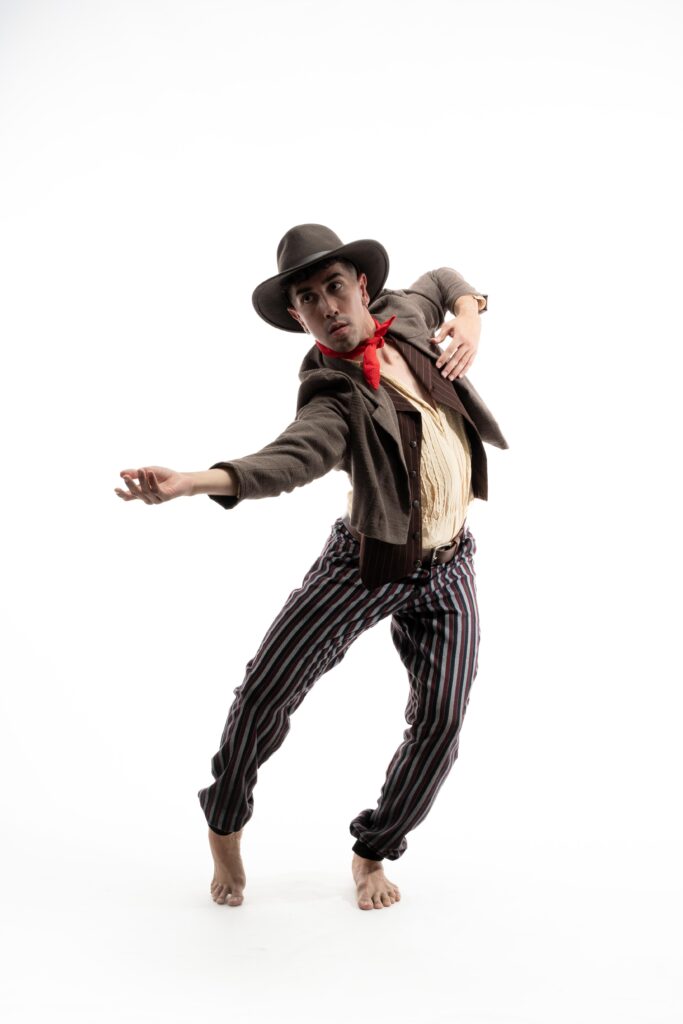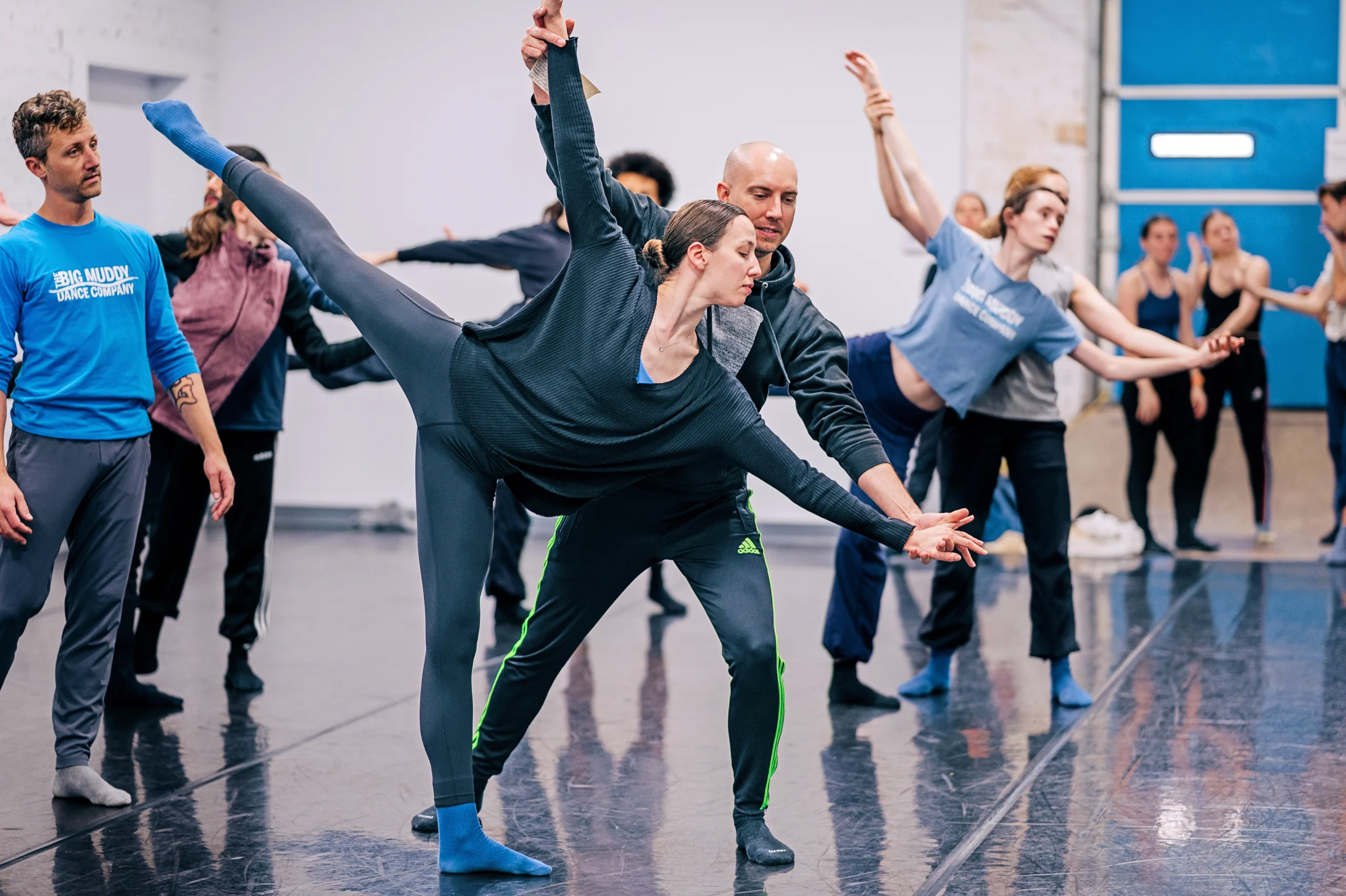Joshua L. Peugh Premieres a Queer Take on the Cowboy Western
Dark Circles Contemporary Dance kicks off its 10th-anniversary season with the premiere of Ten-Gallon, a dancy dive into queerness and the Western genre. Artistic director Joshua L. Peugh will be interrogating traditional ideas of the Western while reenvisioning the genre with his signature absurdist charm. Ten-Gallon runs October 12–15 at Pebble Hills High School Black Box Theatre in El Paso, Texas, where the company will be in residence.

What drew you to investigate queerness and cowboys?
I was born and raised in the desert Southwest, in Las Cruces, New Mexico. The imagery and iconography of the Western were part of my day-to-day life. When I returned to New Mexico during COVID-19 after living in Seoul and Dallas for 20 years, I had to reimagine how I fit into the landscape and what it meant to me. What interested me was thinking about how, when we were growing up, Western movies and stories shaped masculinity for my friends who were queer, BIPOC, and white. As a kid, I wasn’t particularly interested in the genre, but now it’s fascinating because of how hugely and effectively it influenced our national narrative and identities.
How will your inclination toward dark whimsy manifest in this piece?
There are so many things that are absurd and campy about the Western genre. My goal is to elevate and accentuate those things in a playful and entertaining way. Maybe the cowboys become the saloon girls? There are so many fun ways to twist the tropes.
The work premieres in Texas, a state that has been eroding the rights of LGBTQ+ people.
The things happening to our LGBTQ community nationwide are devastating, and it has even influenced the gatekeepers in the dance community, making it harder to produce work that features something as simple and natural as male/male partnering.
El Paso, Las Cruces, and Juarez, Mexico, make up a large border community with interconnected history and issues. Another fortuitous outcome is that we get to be in residence at an El Paso high school for the entire production week, embedding our staff and artists into their fine arts program and giving their students access to our team and creative process.
The program also includes Queering the Second Act, your reimagining of The Nutcracker.
What’s exciting to me is returning to the source material written by E.T.A. Hoffmann and later interpreted by Alexandre Dumas. The Nutcracker is a fairy tale, and Drosselmeyer delivers Marie from the domestic sphere into a world of fantasy, queerness, and paganism, so I’ve been building a production of The Nutcracker that does those things, elevating imagination and subverting the rituals and confines dictated by society.
How has returning to your hometown of Las Cruces served your creative process, and how has the structure of Dark Circles changed since you moved?
The most obvious way Las Cruces has influenced my work is that I’m creating a Western in the first place. Dark Circles moved here because it felt like a retreat for us. Now we get to bring other artists here and treat them to the same peaceful pace, quiet, and enchanting landscapes.
Just before COVID, we moved to a project-based model. That has served us even better now that we’re in southern New Mexico. Our audience here is majority Hispanic, and the median income is surprisingly low. Our goal has always been to make our work as accessible as possible to as many people as possible, but our focus on that has become even more critical. Las Cruces produced me. It is where I grew up as a young artist, and it is exciting to provide opportunities and visibility I didn’t experience growing up. Dance is a human ritual that belongs to all people.




